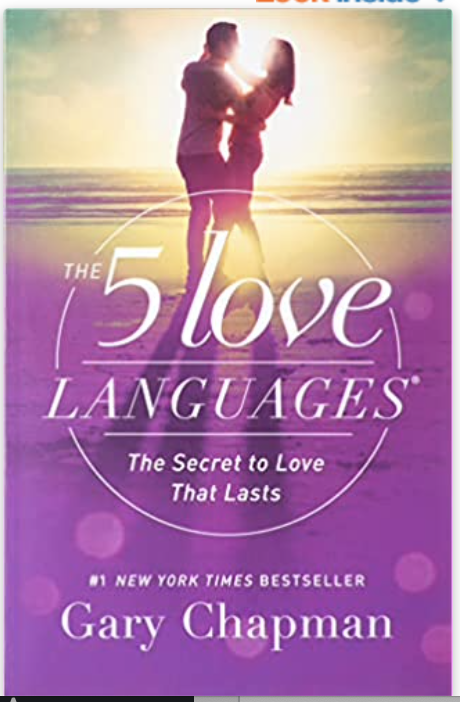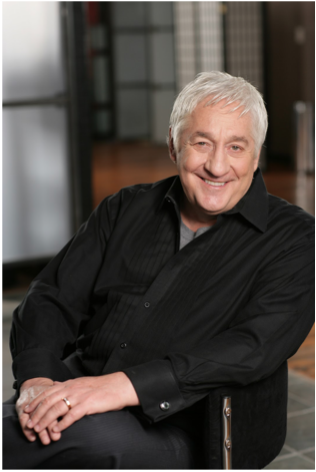5 Things To Consider Before Divorcing An Unfaithful Spouse
Marriage expert Joe Beam shares 5 things to consider before divorcing an unfaithful spouse.

Joe Beam, chairman of marriagehelper.com, is not only a dear friend to my husband and me, but we consider him one of the foremost Christian experts on marriage~especially marriages in crisis.
Joe has worked with thousands of couples throughout the years and has been instrumental in saving marriages that seemed hopeless. In instances where infidelity is involved, offended spouses often face great difficulty in deciding whether to remain in the marriage or divorce the unfaithful spouse.
The following is Joe’s answer each time he is asked “should I divorce or reconcile with my unfaithful spouse?”
Joe Beam, Marriagehelper.com
1. DO NOT ALLOW YOUR FAMILY OR FRIENDS TO MAKE YOUR DECISION
We need our friends and families. We need them even more during times of crisis. We want their support, love, and understanding.
However, following their advice in trying times may lead to poor consequences.
Why?
When we hurt, those who love us also hurt. Because of their love for us, they can become very angry and bitter toward the person who caused our pain. Often, that creates within them strong negative feelings about that person. Therefore, they usually do not wish us to continue in a relationship with the one who hurt us. Instead, they want to protect us from the offender and often feel that the only mode of protection is to leave to avoid any future pain.
Sometimes their urging us to end the relationship actually is the wisest course of action; sometimes it is not. Their love for us may blind them to the possibility of rescuing the relationship and the benefits that reconciliation brings.
If your spouse has hurt you – especially by infidelity – bask in the love and security of your family and friends, but seek advice about how to deal with your straying spouse from wise and experienced people who do not carry your hurt in their hearts.
Before making your decision about divorce or reconciliation, seek balanced counsel rather than biased counsel.
2. DO NOT TRY TO HURT THE ONE WHO HURT YOU
A woman who caught her husband in his second illicit relationship packed her things and her children and moved back to her hometown. In a phone conversation, she told me that her friends wanted her to do everything she could to destroy her husband’s reputation as well as annihilate him financially. When I inquired whether she intended to do so, she replied that she told her friends she had enough hurt on her own and did not need to take on theirs as well.
I told her how impressed I was with her maturity. She understood a principle that many seem to miss: vengeance leads to bad decisions, and bad decisions lead to bad consequences.
Vengeance attempts to make the other person hurt as badly as you hurt. It never fully satisfies because you can never be sure that the other person hurts as badly as you do.
Demand justice, but forego vengeance. Vengeance may hurt the other person, but the emotional damage it does to you may be far worse. Collateral damage, such as the long-term effect on your children, financial stress, or dividing your mutual friends, may well be the worst of all. Vengeance usually hurts the vigilante more than the intended target.
If you intend to hurt the one who hurt you, you will not make a wise decision about whether you should divorce or reconcile. If you wish to make the best decision for your future, acknowledge your hurt, but do not let your pain cloud your judgment.
Make the choice that benefits you, your children, and your future, rather than a choice that ultimately hurts you more. To do that, acknowledge your hurt, but do not focus on repaying the hurt.
3. CONSIDER YOUR SPOUSE’S HEART
A woman sat in my office after discovering her husband’s infidelity. She talked about how her family, especially her father, wanted her to divorce her husband and, in the process, punish him severely for what he had done. After we talked about the danger of heeding advice from family and friends, and the detriment to her own heart and soul if she sought vengeance, I asked her a question.
“Is he a bad man who did a bad thing, or is he a good man who did a bad thing?â€
She inquired as to why I would ask that question. I explained that good people sometimes do bad things, but that if they are at heart still good people, they may be worth rescuing. Good people who regret bad behavior and want to make things right tend to be better people than they were before their indiscretion.
“So,†I asked, “Is he a good man worth taking the risk to rescue, or a bad man that you should get away from and stay away from for the sake of you and your children?â€
She decided he was at heart a good man. She took the chance, and they worked out their problems. They not only reconciled, but they have a strong marriage today.
If you find yourself wondering how to tell if a person is good or bad, I suggest you evaluate how he or she was before the infidelity or other bad behavior. Obviously, a person committing adultery is not doing a good thing, but perhaps he or she does have the heart to be led from the grips of sin back into a right relationship with God and spouse. If at heart the adulterer has strong morals and a sense of right and wrong – likely he or she eventually will come to regret the infidelity and seek to make things right. Therefore, rather than considering only the present situation, consider who your spouse is and has always been. That may provide insight into what he or she will be in the future.
If the straying spouse has ended the illicit relationship and wants to make the marriage work, that usually means that at heart she or he is a good person. If the straying spouse continues in the infidelity, he or she may still be a good person at heart who in time will come to regret the unfaithfulness. If he or she has no hint of remorse or desire to make things right, this may be a case in which his or her heart is completely seared and beyond repentance.
Before making your decision about divorcing or reconciling, consider your spouse’s heart and evaluate whether he or she is worth rescuing.
4. THINK OF THE FUTURE AS YOU MAKE YOUR DECISION
Suzy Welch wrote the book 10-10-10: A Life-Transforming Idea. She explains that when making a decision, one should consider both the short-term and long-term impact. She suggests considering the consequences of your decision in 10 minutes, in 10 months, and in 10 years.
If you could rescue your marriage and make it good again, what could be the consequences to you, your children, and your spouse in 10 minutes, in 10 months, and in 10 years? On the other hand, if you divorce your spouse, what might be the consequences in 10-10-10?
Our experience with thousands of marriages indicate that if a couple can work out their difficulties, learn to forgive, create the right boundaries to prevent future problems, and do the things that make love grow, the marriage can be stronger after the affair than it was before the affair. No, the affair did not make it stronger. The “wake up call†and the subsequent building of a solid relationship made it stronger.
In considering 10-10-10, realize that being divorced does not automatically guarantee finding a new mate. Forgiving and reconciling can lead to a better marriage than before. Divorcing leads to being alone if you do not find another mate. Even if you do find another mate, that relationship also has risks. Every relationship does.
When considering 10-10-10 in making your decision to reconcile or divorce, think of the effect on your children in ten years. Children do better when they grow up with their biological parents. Additionally, holidays, seating and honors at your children’s weddings, potential half-siblings, and many other matters will become part of their lives as well as yours if either you or your mate marry someone else.
Divorce or reconciliation both have consequences now, in a few months, and in the years to come. Think carefully about whether to end the relationship or to work to reconcile and make it stronger.
5. SEEK THE PROPER HELP
If you think you may reconcile, find the right help. Forgiving and reconciling do not happen naturally.
Help in Understanding How It Happened
It is important to understand how the infidelity occurred so that boundaries can be set to prevent it from ever occurring again. Often, gaining this understanding causes pain in both the betrayer and the betrayed. Realizing why your spouse developed an emotional bond with another person can be extremely painful. Beyond that, you may face your own flaws if you happen to discover any unwitting contributions you made to situations that opened the possibility of unfaithfulness. This does not mean that you take responsibility for your spouse’s adultery, but that you recognize any of your marital imperfections.
Help in Putting the Marriage Back Together
Deciding not to divorce requires understanding of how to forgive and reconcile. Reconciliation occurs in phases. It starts as a decision, and if done well, develops into an emotion. Learning how to make the decisions involved in the reconciliation process and knowing how to evaluate the process as it happens is very important. Ultimately, the goal is not to reconcile for the sake of reconciliation, but to learn to love deeply.
There are many professionals who can help you through deciding whether to reconcile, and then, if you wish, to actually accomplish the reconciliation. They can help you love again and have a better marriage than you had.
There are many reputable Christian marriage counselors who can offer help. We at marriagehelper.com are also here. If we can help, please call us toll free at 866-903-0990.







Excellent considerations. Pre-Affair dynamics need to be examined.
–Red Mountain Counseling
I left a message but don’t see it … to repeat: great post. wb
Wow…what a powerful testimony, Pepperpatch! I am so thankful that you shared this with others, as it may help someone who is sitting on the fence. Thank you for reading and for sharing your heart!
Pepperpatch, what a powerful testimony! Thank you so much for sharing this and for pouring your life into helping other couples. God bless you!
Joe, This advice is dead on!! My husband was unfaithful years ago. He could have lived our entire married life and not told me, but his conscience would not allow that. After he told me, I was devastated and incredibly angry. My husband wanted a pure heart and offered to do whatever it took for as long as it took to make our marriage work. I went to a counselor who asked me if I could forgive; completely forgive. I didn’t know. In my time alone with God, I read the verse that says, “love covers a multitude of sin.” I still loved my husband and chose to not involve friends, family, or our children. We went to counseling and worked on understanding why it happened and what we could learn from it. I learned that I had put my husband in a position that he didn’t belong. He was my idol and I trusted in him to be my total security. Only God fits in that position, and I learned to look at my husband as my “helpmeet” in life. We were partners working together. He learned to have great grace for people who make big mistakes (he had always prided himself on being a “good” Christian. He learned the pain of falling and the intense pain that it causes loved ones. Today, we have been married 30 years and are more in love than ever. We enjoy one another and we are so thankful that we stayed together and worked things out God’s way. We have had dear friends and family members who have had their marriages rocked by infidelity, and because of this, my husband decided to tell our children about our struggle (they are grown now). When friends and family struggle, we immediately spend time with them opening up about our experience and encouraging them to begin the healing process. We feel that God led us through this difficult time in order to reach out to other couples. We are truly blessed!! I tell you all of this to say, “Thank You!” Your advice is rich with wisdom and mercy and will be so helpful to those suffering today.